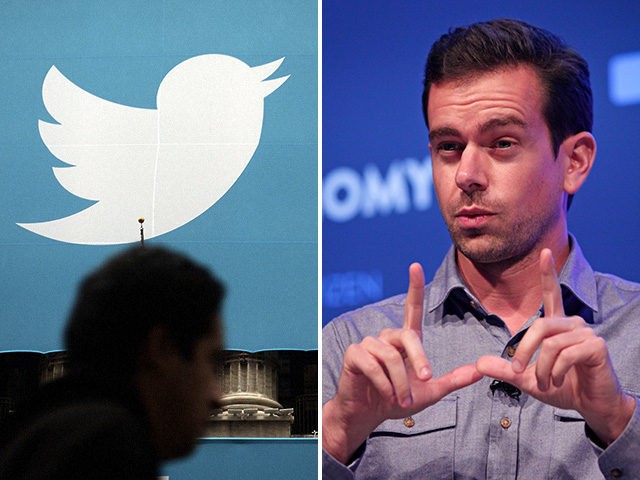Twitter announced on Monday that it will message U.S. users on its platform in an attempt to “preemptively address topics that are likely to be the subject of election misinformation.”
Twitter is expanding its policies in an attempt to “preemptively address” information about the 2020 U.S. presidential election, according to a report by USA Today.
“These prompts will alert people that they may encounter misinformation, and provide them with credible, factual information on the subject,” said Twitter in a statement.
One of Twitter’s prompts talks about how voting by mail is safe and secure. From there, the prompt will direct Twitter users to a “Moment” with more information on the so-called security of voting by mail.
Breitbart Tech senior reporter Allum Bokhari documented one of Twitter’s offical fact checks on the New York Post’s Biden bombshells this week.
He wrote:
The fact check uses selective emphasis. It does not, for example, highlight the fact that the same GOP-led investigation found that Hunter Biden “cashed in” on his father’s name, using it to secure a lucrative salary from Burisma and pursue other business deals around the world.
This is acknowledged in the same New York Times article cited by Twitter.
Twitter’s fact-check also quotes liberal-leaning NPR and far-left HuffPo, making the nonsensical allegation that ” emails found on a hard drive have been proven to lack evidence,” according to the two outlets.
NPR says that the emails “have not been verified as authentic,” a journalistic sleight of hand which tells us nothing about whether NPR or any other outlet has even tried to verify them. In fact, NPR has done its best to avoid reporting on the growing scandal, stating: “We don’t want to waste our time on stories that are not really stories, and we don’t want to waste listeners’ and readers’ time on that stories that are just pure distractions.”
Despite Twitter’s — and other social media platform’s — attempts at “debunking” alleged “misinformation” ahead of the presidential election, there is, however, a plethora of evidence that voting by mail is not as secure as voting in person — and that it may not be secure in general.
In Brooklyn, New York, 25 percent of mail-in ballots were ruled invalid during the June Democrat primary. In a New Jersey special election, nearly 20 percent of the ballots were thrown out, and four people are being prosecuted for fraud.
In a Florida primary, more than 35,000 mail-in ballots were rejected, and over 100,000 ballots were rejected in California.
In Pennsylvania’s primary, half of the counties were still counting ballots a week after the election. Also in Pennsylvania, military ballots were found discarded, many of them were cast for Trump.
Reports in Wisconsin of three trays of mail containing absentee ballots were found in a ditch. In North Carolina, voters reported receiving two ballots in the mail.
Regardless, social media platforms appear to have taken it upon themselves to push a different narrative under the guise of debunking misinformation.
You can follow Alana Mastrangelo on Facebook and Twitter at @ARmastrangelo, on Parler at @alana, and on Instagram.

COMMENTS
Please let us know if you're having issues with commenting.